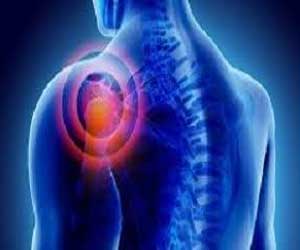- Home
- Editorial
- News
- Practice Guidelines
- Anesthesiology Guidelines
- Cancer Guidelines
- Cardiac Sciences Guidelines
- Critical Care Guidelines
- Dentistry Guidelines
- Dermatology Guidelines
- Diabetes and Endo Guidelines
- Diagnostics Guidelines
- ENT Guidelines
- Featured Practice Guidelines
- Gastroenterology Guidelines
- Geriatrics Guidelines
- Medicine Guidelines
- Nephrology Guidelines
- Neurosciences Guidelines
- Obs and Gynae Guidelines
- Ophthalmology Guidelines
- Orthopaedics Guidelines
- Paediatrics Guidelines
- Psychiatry Guidelines
- Pulmonology Guidelines
- Radiology Guidelines
- Surgery Guidelines
- Urology Guidelines
Guidelines on decompressive surgery for nontraumatic Subacromial Shoulder Pain

A guideline Panel has released Guidelines on decompressive surgery for nontraumatic Subacromial Shoulder Pain. The panel including patients, clinicians, and methodologists produced this recommendation in adherence with standards for trustworthy guidelines and the GRADE system. The recommendation is based on two linked systematic reviews on (a) the benefits and harms of subacromial decompression surgery and (b) the minimally important differences for patient-reported outcome measures.
Nontraumatic shoulder pain due to subacromial pain syndrome (SAPS), shoulder impingement, or rotator cuff disease that persists beyond 3 months is associated with poorer long-term recovery and disability. Nonoperative treatments for SAPS include oral analgesics, physical therapy, and corticosteroid injections. Increasing numbers of patients are undergoing surgery with arthroscopic subacromial decompression. This guideline is based on two systematic reviews and a meta-analysis of data from seven randomized controlled trials that involved 1000 participants with SAPS (mean age, 49; median symptom duration, 2 years), which showed that surgery provided no improvements in pain, function, or quality of life compared with placebo surgery or other options.
Main recommendations are-
- In two trials that involved 331 patients, researchers compared decompressive surgery with placebo surgery; decompression provided no benefit for pain, function, health-related quality of life, patient-perceived effect, or return to work at any time point from 6 months to 5 years.
- In five nonblinded trials, researchers compared exercise therapy alone with decompressive surgery plus postoperative exercise therapy. Compared with exercise therapy alone, surgery provided no benefit for pain, function, health-related quality of life, patient-perceived effect, or return to work.
- Extrapolating from data in the two placebo-controlled trials, decompressive surgery would be associated with 12 additional frozen shoulders per 1000 patients.
- Glucocorticoid injections and NSAIDs may provide moderate to small short term benefits on shoulder pain compared with placebo.
- Exercise, manual therapy, and electrotherapies are of uncertain benefit to patients compared with watchful waiting, and guidelines vary in their recommendations.
- A holistic approach to care, with appropriate communication including reassurance and education, is likely to benefit patients but is poorly studied.
The benefit of arthroscopic subacromial decompressions (ASD) for shoulder impingement has divided opinion among healthcare professionals for years. Despite good evidence against its efficacy, including studies which showed no difference between ASD and an exercise programme, its use has increased dramatically over the past quarter of a century. The past decade alone saw an increase of 746% in the number of procedures across the UK.3
For more details click on the link: doi: https://doi.org/10.1136/bmj.l294

Disclaimer: This site is primarily intended for healthcare professionals. Any content/information on this website does not replace the advice of medical and/or health professionals and should not be construed as medical/diagnostic advice/endorsement or prescription. Use of this site is subject to our terms of use, privacy policy, advertisement policy. © 2020 Minerva Medical Treatment Pvt Ltd